Is winter washing fruit trees on your to-do list this month? We examine the pros and cons and look at natural alternatives to prevent pests
Winter washing will combat pests but also kill beneficial insects - and there are natural control methods to target those same pests
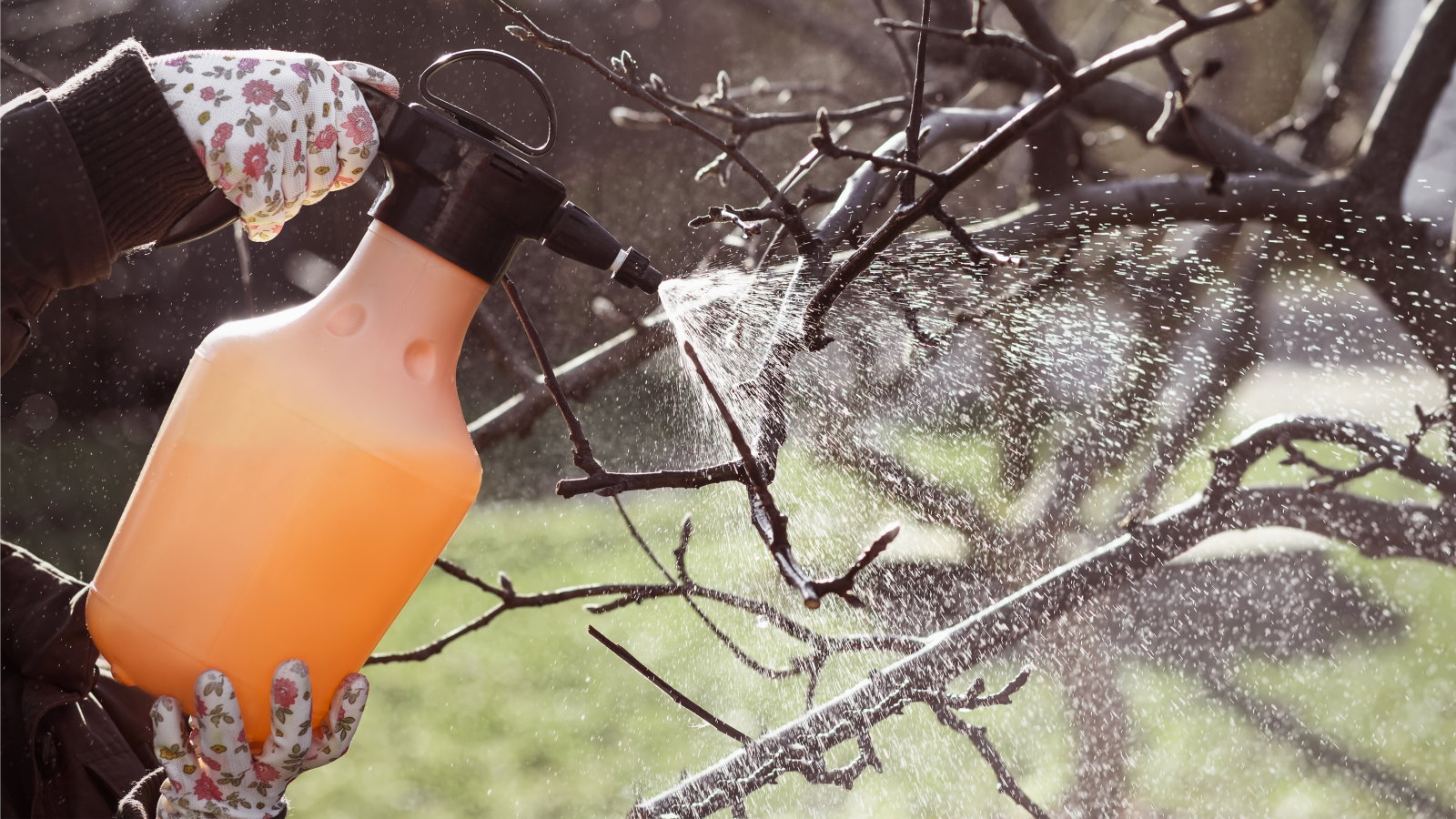

Winter washing fruit trees is a way to help control pests and diseases by spraying trees with a mixture of natural plant oils diluted in water. Such products are regularly seen for sale each winter, but do the benefits of winter washing fruit trees outweigh the drawbacks?
In summary, winter tree wash can kill pests that may be overwintering on fruit trees. However, it also poses risks to other beneficial insects, including predators that can deal with pests and hibernating wildlife.
Is there always a justification to reach for the chemicals rather than adopt natural techniques to control pests and diseases? To help decide whether winter washing fruit trees is for you, this guide looks at the pros and cons and includes recommended steps for using winter tree wash properly.

What is winter washing fruit trees?
Winter washing fruit trees involves spraying them with a winter tree wash product and helping control pests and diseases. The products are a mixture of natural plant oils diluted in water and commonly available in garden centers or online retailers.
The task is particularly beneficial for apple, pear, plum, and cherry trees, however, a winter wash can also help when you grow grape vines, blackberries, and blackcurrants.
Winter washing fruit trees offers a proactive way to reduce pest problems, but it should always be done with caution as there are negatives to using such products.
The benefits of winter washing fruit trees
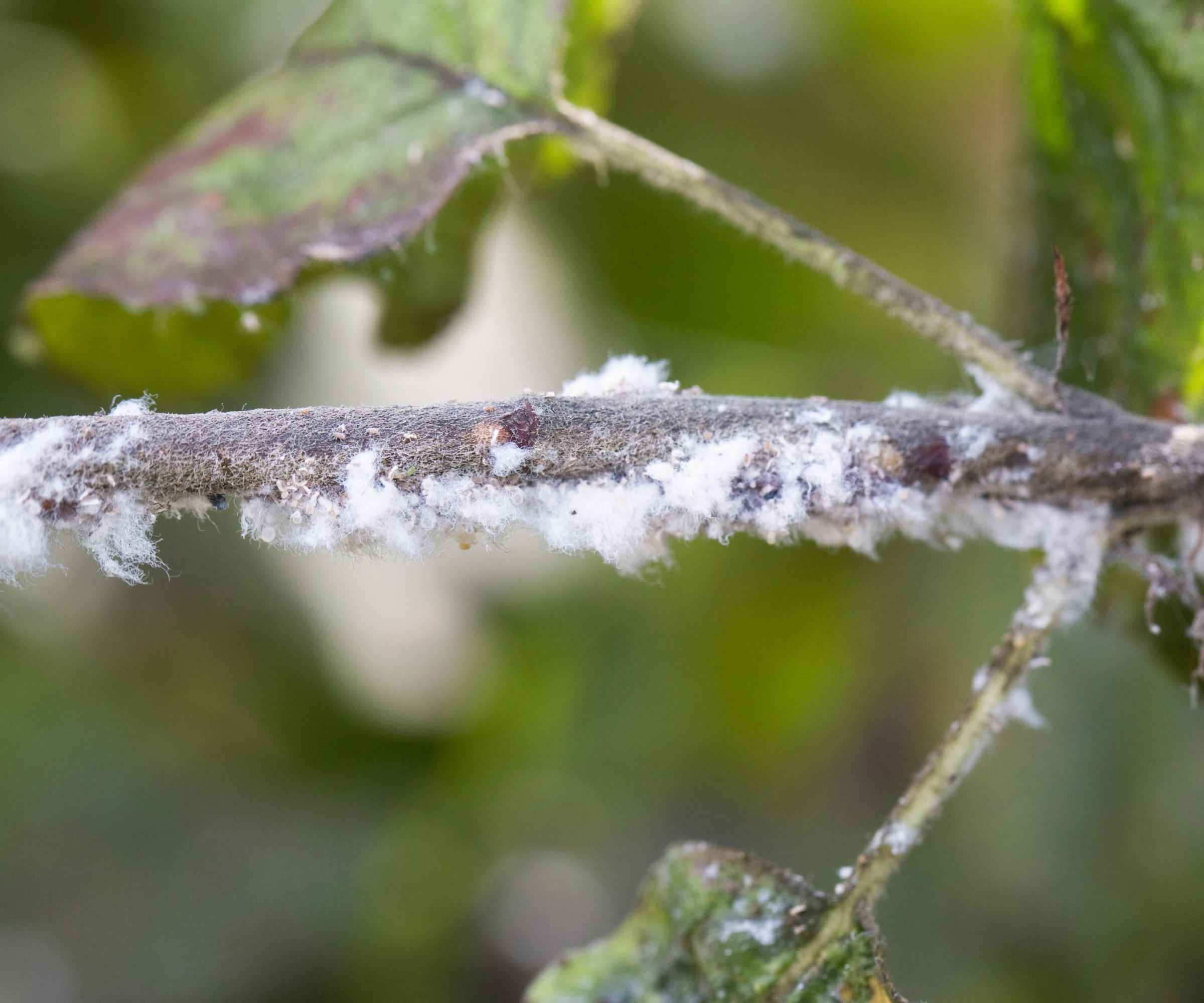
The reason for winter washing fruit trees is to control pests and diseases and help you get a fantastic crop come summer. Spraying a winter wash kills pests overwintering on the fruit tree which will cause issues when the temperatures rise in spring.
‘You’re helping to rid the tree of overwintering insect pests, eggs, and the debris that pests might use as hiding spots for their future families,’ explains David Fryer, a pest prevention expert and head of technical at Fothergill’s. ‘And a pest-free start to the season can lead to a more robust harvest come summer.’
Winter washing fruit trees can be particularly beneficial if you have an infestation and want to get rid of aphids or woolly apple aphids that commonly trouble fruit trees. It reduces current infestations by targeting dormant pests and prevents new infestations by dislodging larvae and eggs.
As well as pests, winter washing fruit trees reduces disease by destroying fungal spores that can cause nasty fruit tree diseases such as peach leaf curl.

David Fryer has worked in horticulture all his career. He spent time working for the Ministry of Agriculture as a Horticultural Advisor and then as a Consultant advising growers on pest prevention, fertilizers and irrigation and new varieties. He has been Head of Technical at Fothergills Seeds for the last four years, responsible for sourcing seed and quality management including germination testing and growing trials.
The negatives of winter washing fruit trees
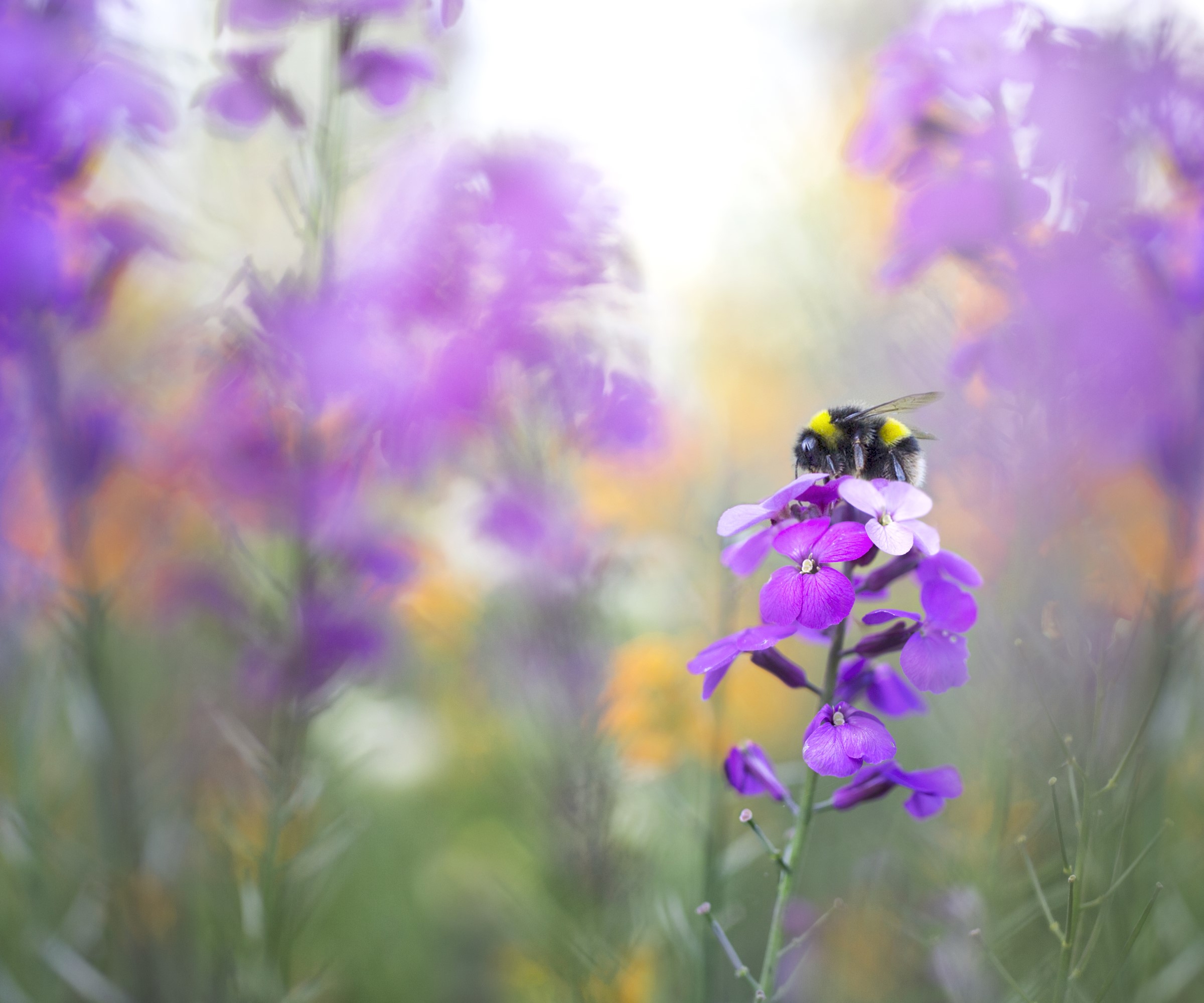
There are potential drawbacks to winter tree wash that can counteract the positives as the products are not good for wildlife gardens. The product will target and kill many fruit tree pests, but it also can destroy beneficial insects in the garden and always needs to be done with caution.
Graham Smith, a gardening expert from LBS Horticulture, warns: ‘Winter washing fruit trees may also remove overwintering pest predators, such as queen wasps, or potentially affect hibernating wildlife.’
Unless you have a large infestation, it would be unwise to use chemicals. Especially as there are many natural pest control methods available to combat fruit tree pests without threatening beneficial insects. For example, a simple measure such as clearing leaf litter around trees will prevent pests from overwintering in the organic matter.
Companion planting encourages natural predators that can help to deal with problem pests and planting flowers to attract ladybugs to your yard will encourage a healthy population that can eat aphids and woolly aphids.
As well as ladybugs, natural enemies of aphids and woolly aphids like hoverflies, ground beetles, and parasitic wasps can be encouraged by planting umbellifer flowers and native plants near fruit trees.
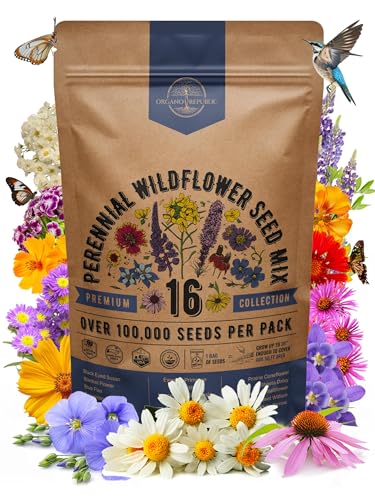
A blend of seeds featuring over 16 varieties and 100,000 wildflower seeds designed for planting across North America. These wildflower seeds will attract pollinators and beneficial insects to combat fruit tree pests like aphids and woolly aphids.
When and how to winter wash trees
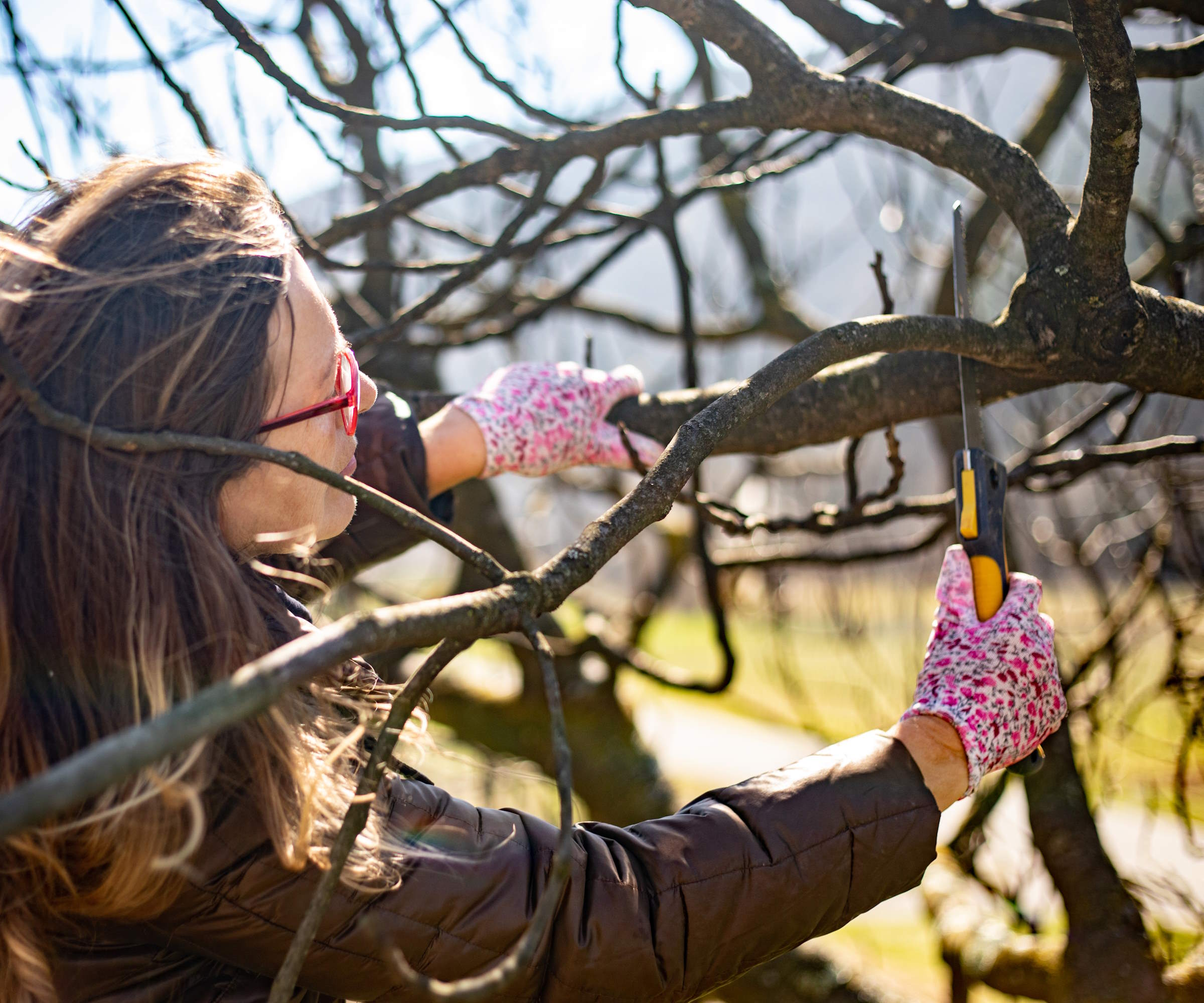
Winter washing is a job to do in late winter before the trees start growing leaves or buds in spring. When planning jobs for a winter gardening checklist, plan to winter wash after pruning fruit trees in winter.
‘It's best to winter wash after winter pruning,’ says David Fryer. ‘No one likes wasting effort on branches destined for the cut. Post-pruning, you'll find it much easier to target the bark, where insects may have laid their eggs.’
Always wear gloves and goggles when using winter tree wash. Mix the concentrated product with water into a spray bottle or knapsack sprayer using a measuring jug. Always mix it according to the manufacturer’s instructions - making a stronger product wastes the chemical and will harm nearby wildlife - and spray on a still day to avoid the spray drifting and affecting other plants.
Angela Slater, gardening expert at Hayes Garden World, advises spraying the wash over the whole of the trunk and the branches. She adds: ‘Pay particular attention to the nooks and crannies and where the lateral branches join the trunk as these tight spots are where the pests and eggs will be lurking.’
A soft brush can be used to work the wash into crevices and trees suffering from major infestations may require a second application of the winter tree wash.

Angela Slater holds a degree in Conservation and Land Management and has worked for Hayes Garden World, in various guises, for 33 years. Angela is a regular contributor to many national, lifestyle and garden trade publications.
FAQs
Can I spray my fruit trees with soapy water?
A homemade bug spray of water and mild liquid soap can be sprayed onto fruit trees. It is a good DIY aphid spray that will cause the pests to dehydrate and die. The spray works on active pests but not eggs and will not impact or prevent fungal spores.
Proper fruit tree maintenance always helps to keep them free of pests and diseases. This includes pruning at the right time. Apples and pears are fruit trees to prune in winter while stone fruit like peaches, cherries, and plums should be trimmed in summer to prevent silver leaf of bacterial canker infection.
Also, fertilizing fruit trees in late winter or early spring ensures they grow healthily and are not stressed from a lack of nutrients.
Sign up to the Homes & Gardens newsletter
Design expertise in your inbox – from inspiring decorating ideas and beautiful celebrity homes to practical gardening advice and shopping round-ups.

Drew’s passion for gardening started with growing vegetables and salad in raised beds in a small urban terrace garden. He has worked as a professional gardener in historic gardens and specialises in growing vegetables, fruit, herbs, and cut flowers as a kitchen gardener. That passion for growing extends to being an allotmenteer, garden blogger, and producing how-to gardening guides for websites. Drew was shortlisted for the New Talent of the Year award at the 2023 Garden Media Guild Awards.
You must confirm your public display name before commenting
Please logout and then login again, you will then be prompted to enter your display name.
-
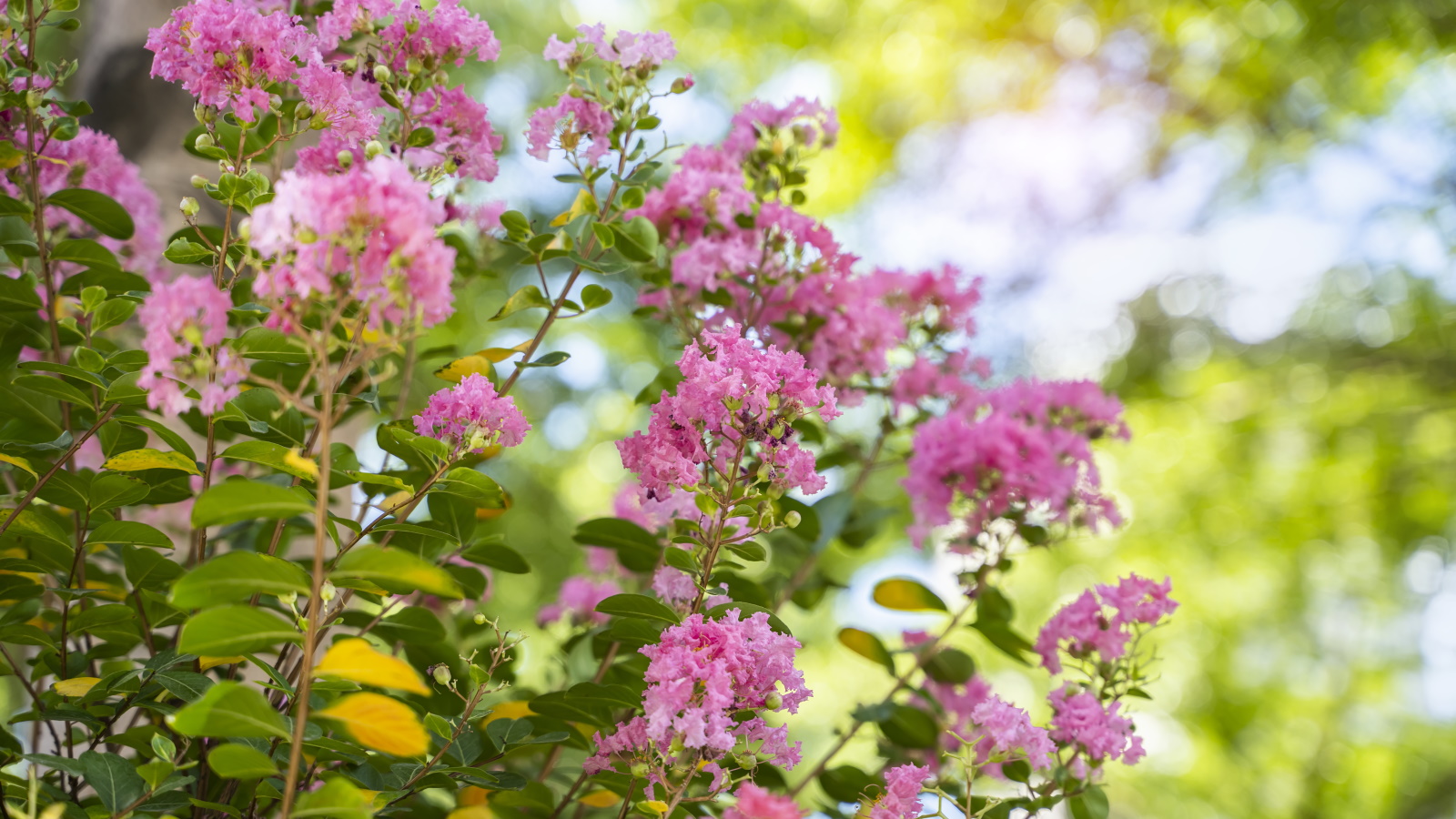 How to grow crepe myrtle in pots – and transform even the smallest of yards with dazzling flowers this summer
How to grow crepe myrtle in pots – and transform even the smallest of yards with dazzling flowers this summerGrowing crepe myrtles in pots will inject splashes of brilliant color into your outside space
By Thomas Rutter Published
-
 I've spent over 200 hours testing vacuums and swear by my two Dysons – this is how I properly clean a Dyson vacuum filter for longer-lasting appliances
I've spent over 200 hours testing vacuums and swear by my two Dysons – this is how I properly clean a Dyson vacuum filter for longer-lasting appliancesYour Dyson vacuum will last much longer and clean at its best
By Dan Fauzi Published